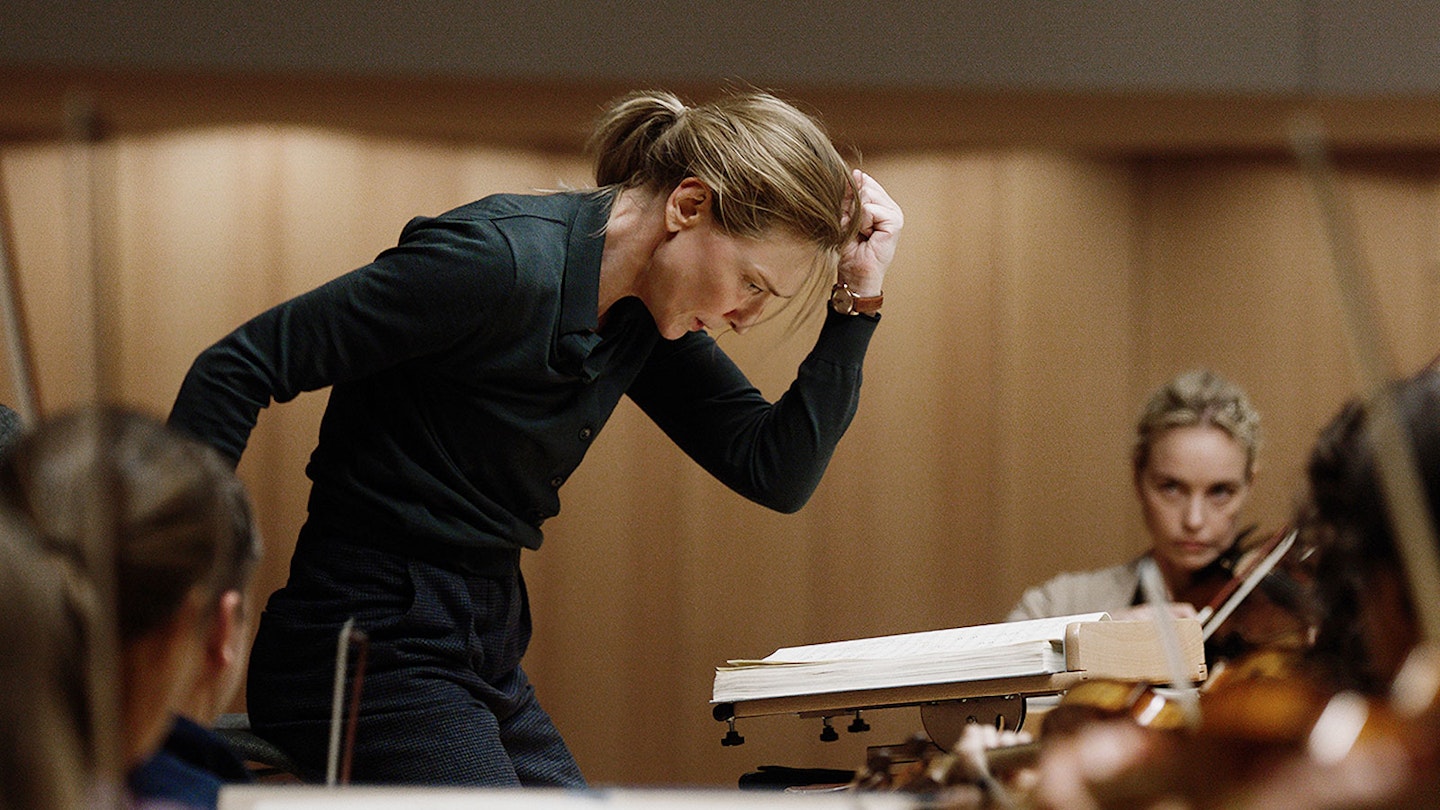There’s nothing in the elevator pitch of TÁR — a renowned classical conductor makes a recording of Mahler’s Fifth Symphony — that makes it remotely sound like it’s one of the must-see films of the year. But Todd Field’s film, only his third in 20 years following In The Bedroom and Little Children, is essential: a granular character study of a complex, contradictory powerhouse. Grappling with what it means to be an artist in the modern era — notions of professional power dynamics, abuse and cancel culture are all given clear-eyed consideration — has seemingly brought the best out of both Field and star Cate Blanchett, who has unquestionably delivered the performance of a lifetime.

Field wrongfoots us from the get-go. After a brief over-the-shoulder look at a bitchy texting session from an unidentified source, TÁR launches into its black-and-white end-credit scroll delivered in its entirety, the director, like some avant-garde composer, toying with our sense of convention, denying us comfortable rhythms to slide into. The film begins proper with fêted conductor Lydia Tár (Blanchett) in lengthy conversation with The New Yorker’s Adam Gopnik, an absorbing, elegant info dump. We learn EGOT winner Lydia is the first-ever female chief conductor of the Berliner Philharmoniker (her gender is never an issue to her or the film), a protégé of Leonard Bernstein and is about to match the achievement of her mentor by completing a recording of Mahler’s symphony cycle (she also usefully explains what a conductor does). Creating a believable superstar artist on film is notoriously difficult, but Field and Blanchett make Lydia so authentic — from the coffee-table book ‘Tár On Tár’ to the carefully considered CD covers — it is tempting to run to Wikipedia to check whether the conductor actually exists.
Field’s filmmaking is cool, detached and imbued with dread, the director seemingly taking cues from his protagonist.
Surrounding Tár are a clutch of beautifully realised supporting characters. Noémie Merlant is excellent as Francesca, Lydia’s dutiful but increasingly disgruntled assistant; Nina Hoss is terrific as Sharon, Lydia’s partner and orchestra concertmaster who is the backbone in Tár’s life — they raise a daughter together — but understands she is playing second fiddle to the music; Sophie Kauer, an actual musician, is perfectly poised as new cellist Olga whom Tár becomes obsessed with (it seems this isn’t the first time she has become fixated by a younger player). All of these characters jostle for position and attention in Tár’s life, but the maestro remains in control. Until she isn’t.

Field’s filmmaking is cool, detached and imbued with dread, the director seemingly taking cues from his protagonist: the images are as controlled and calculated as Tár, hinting at hidden turmoil beneath the carefully composed surface. The writing doesn’t follow pat plotting or predictable character arcs. Instead, Field’s storytelling is elliptical, never quite joining the dots (an eerie sense that Tár is being watched bubbles throughout the movie). A by-product of this unconventional approach is you get great scene after great scene, absolutely no filler. Even more impressive is how Field presents the rarefied, unknowable world of classical music in such compelling, forensic detail — working through the symphony (Blanchett often delivering dialogue in German), the record-company meetings, the auditioning of new orchestra members, the petty jealousies of the players — that it becomes an engrossing cinematic universe, even for those who hear the name Beethoven and think of a slobbering St Bernard dog. The film is also alive to the power of the music at its centre (mainly Mahler and Elgar, but also the unnerving score of composer Hildur Guðnadóttir, who gets a meta mention as a composer Tár has supported), which plays on Lydia’s influences — she is constantly noodling with a tune — but also finds a voice of its own.
At the heart of it all, Blanchett is immense, be it threatening a school girl who bullies her daughter (“I am Petra’s father… I am going to get you,” she warns), playing an accordion loud to put off potential neighbours, and best of all, extolling the beauty of Bach’s Prelude In C Major before crushing a student (Zethphan Smith-Gneist) who rejects the cis male composer as irrelevant (“The architect of your soul appears to be social media,” Tár withers, in a bravura takedown that comes back to bite her later). But what is most impressive about Blanchett is not the fortissimo moments of a totally uncompromising, self-possessed artist; it’s in the perfectly modulated performance that never judges or cajoles us to warm to Lydia but always commands our respect. She etches a woman fracturing under pressure in the tiniest increments. Frankly, it’s a thrill and a privilege to watch.
